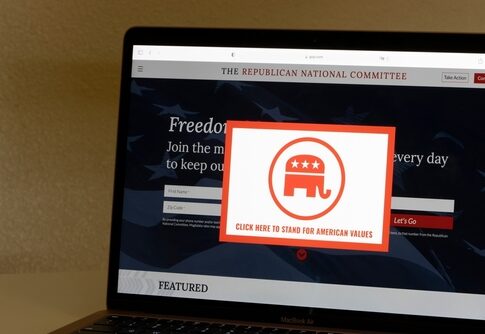In a significant ruling, Pennsylvania’s Commonwealth Court decided that election officials cannot reject mail-in ballots due to missing or incorrect dates on the envelope. This 4-1 decision was hailed as a victory for voting rights, as it eliminates a technicality that could “disenfranchise” thousands of voters. The court ruled that these errors are "inconsequential" and do not impact the legitimacy of the ballot, thereby infringing on the fundamental right to vote guaranteed by the state constitution.
The lawsuit, initiated by the American Civil Liberties Union (ACLU) and the Public Interest Law Center, was filed against Pennsylvania Secretary of State Al Schmidt and election boards in Philadelphia and Allegheny counties. They argued that the requirement to date mail-in ballots was unnecessary since election administrators already rely on the ballot’s arrival date, which is tracked electronically, to ensure timely submission. Judge Ellen Ceisler, writing for the majority, emphasized that rejecting ballots based on such minor errors violated voters' rights to participate in free and equal elections.
And here is,
CONSPIRACY DAY November 3, 2020,
16,000 hours of surveillance video,
3 hours and 15 minutes AFTER POLLS CLOSED IN MICHIGAN Dana Nessel and Jocelyn Benson loading thousands of MAIL-IN- BALLOTS into a minivan with Indiana plates and Gov. Gretchen Whitbag driving.… pic.twitter.com/p2hhcGJgxN— 🇺🇸RealRobert🇺🇸 (@Real_RobN) September 2, 2024
The ruling also comes as a rebuke to Republican efforts to maintain the dating requirement, which they claimed was necessary to prevent fraud and provide a secondary method for confirming when a ballot was cast. Republican National Committee (RNC) spokesperson Claire Zunk condemned the decision as "judicial activism" and vowed to appeal the case to the Pennsylvania Supreme Court. Zunk, along with others, argued that maintaining the dating rule was essential for election integrity. They also contended that striking it down undermined confidence in the state's election processes.
The ruling addresses a problem that has persisted since Pennsylvania expanded mail-in voting under Act 77 of 2019. The law has been a flashpoint for legal challenges, particularly around how mail-in ballots are processed. In the 2022 midterm elections, more than 10,000 mail-in ballots were rejected due to date-related errors, prompting this latest legal battle. During Pennsylvania's April 2024 primary, over 4,000 ballots were discarded for similar reasons.
🚨Ohioian receives Absentee Ballots application in the mail!🚨
-Prefilled request for ballots. Name, address, and a sequence of numbers!
-To past address of voters who have never requested an absentee ballot
-they really want the people to mail in vote!
-Texas has received… pic.twitter.com/l3MO5yanUE— 🇺🇸Thought Criminals🇺🇸 (@THGHTCRMNLS) August 30, 2024
Despite the victory for voting rights groups, state and local officials expressed caution about declaring an outright win. While the ruling marks a step forward, concerns remain about other common errors voters make when casting their mail-in ballots, such as failing to use the required secrecy envelope.
Philadelphia election commissioner Lisa Deeley noted that although the court ruling is a positive development, ongoing legal challenges and voter errors will likely continue to create issues during future elections.
Judge Patricia McCullough, the sole dissenter in the case, criticized the majority opinion, arguing that the court overstepped its bounds. She stated that the requirement to date ballots was "the least burdensome of all ballot-casting requirements" and emphasized the importance of the legislature's role in determining election laws. McCullough also raised concerns that removing the dating requirement would erode public trust in election procedures.
The ruling may have wide-reaching implications in upcoming elections, particularly as more voters opt to cast mail-in ballots. With Pennsylvania being a key swing state in the 2024 presidential election, the decision ensures that minor paperwork mistakes won't cost voters their say. However, the potential appeal by the GOP and the uncertain fate of other similar legal battles suggest that the issue of mail-in ballot processing is far from resolved.


